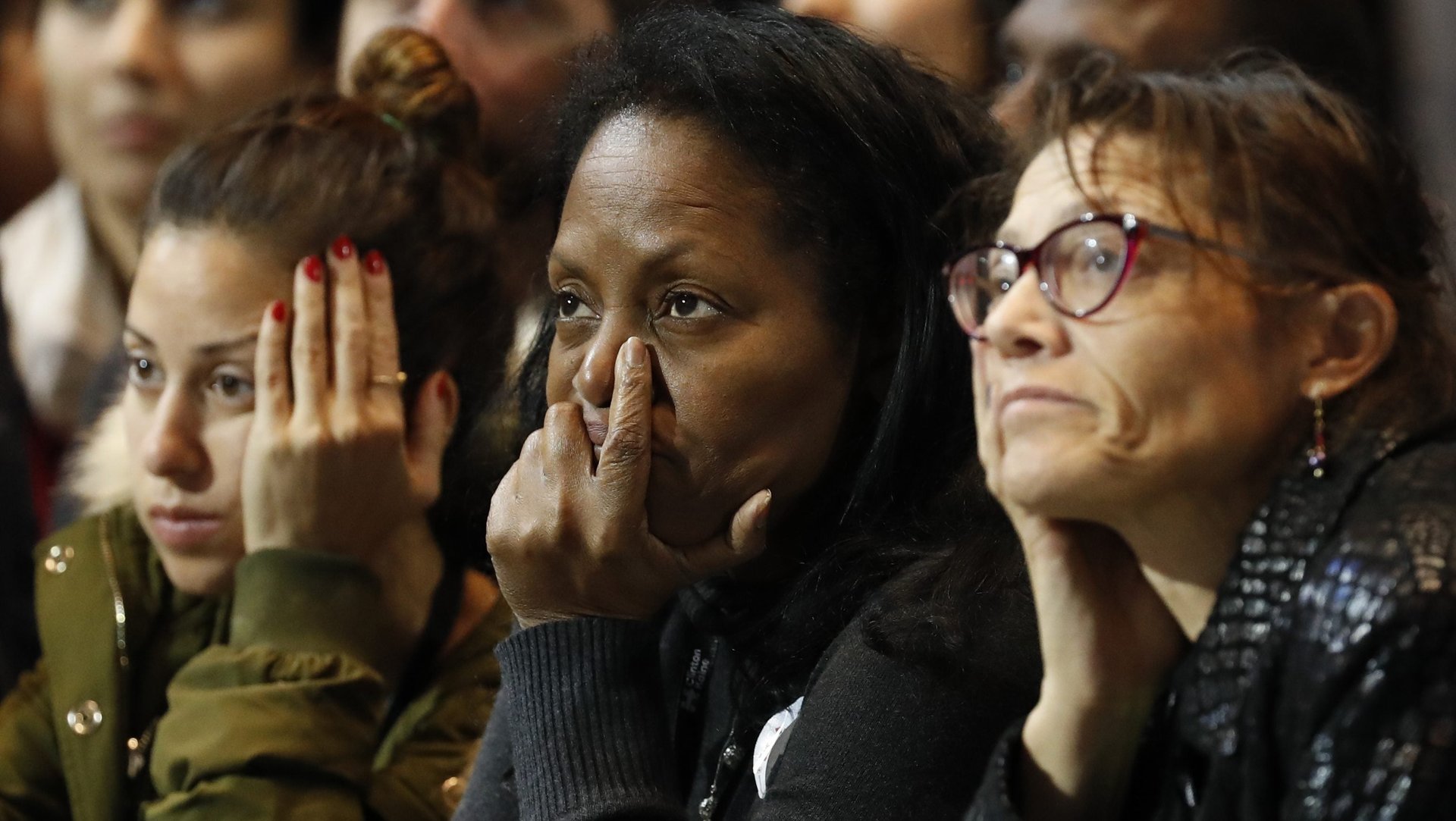The Swedish concept of “trygghet” explains why having an erratic leader is so destabilizing
Whether by design or not, the politics of US president Donald Trump’s administration have become wildly unpredictable, causing anxiety for millions.


Whether by design or not, the politics of US president Donald Trump’s administration have become wildly unpredictable, causing anxiety for millions.
There are those worried about whether they’ll have adequate, affordable health care. Hastily instituted travel bans have interrupted the lives of thousands of families, while wreaking havoc for cultural and academic institutions. Companies fear losing their ability to attract top talent to the country on work visas. Thousands of undocumented immigrants are afraid to leave their homes, seek legal protection from abuse, or use much-needed food stamps, and are preparing for sudden immigration raids and deportations.
What’s sorely missing in the US these days is a sense of “trygghet,” a Swedish concept that has no direct translation in English.
In its crudest sense, trygghet means security, but it’s more nuanced than that, says Rolf Ekéus, a former Swedish ambassador to the United States who also once led the United Nations Special Commission on Iraq, and is now dedicated to nuclear nonproliferation. The direct translation for security is säkerhet, he explained to Quartz; in trygghet, however, “there is an element of predictability, and an element of comfort and safety. It has all of these meanings, and the effect has a softness.”
The word appeared in a recent New Yorker story chronicling a heartbreaking syndrome that exists only in Sweden. Since the early 2000s, hundreds of refugee children whose families’ applications for asylum have been rejected have fallen victim to a curious, culture-bound syndrome called uppgivenhetssyndrom, a kind of debilitating despair that leaves the children unable to move or eat.
Author Rachel Aviv writes that one Swedish doctor links the illness to the children’s lack of peace of mind, believing that “people cannot be truly healthy unless they have trygghet.” Aviv, who adds that trygghet incorporates “a sense of belonging, freedom from danger, anxiety, and fear,” also points out that trygghet is an animating idea in Swedish politics. She quotes a Swedish minister of social affairs who in 1967 declared: “Security is the most basic foundation of the individual.”
Ekéus says the philosophy behind trygghet-focused welfare in Sweden was laid down in the 1930s, when the Swedish Social Democratic Party sought a solution to large-scale emigration. Millions of Swedes had left for the US in the 19th and early 20th centuries, looking for cheap farmland and religious freedom.
In response, the Swedish leadership enacted ambitious programs that would make Sweden more attractive–you might even say “great.” These policies would allow Swedes to feel safe and cared for, legally, financially, and physically. (Security was an obvious concern in 1930s Europe.) “Still, you could have good soldiers and a large military, but that is not enough,” says Ekeus. He believes the emphasis on trygghet helped Swedish society survive the pressures of that era, including fascism.
In the 1960s, the country took trygghet to a new level with social welfare projects like the Million Programme, in which the government oversaw construction of more than one million affordable apartments over 11 years to ease a housing shortage. Today, Sweden is known for its high taxes, of course, but also its well-managed economy, political stability, and cradle-to-grave social welfare policies, including universal health care and high-caliber, free public schools.
Significantly, trygghet is not a fleeting emotion, Ekeus adds: It’s the idea that you are cared for, and your neighbors are cared for. “That safety extends to your children,” he says. “There’s a sense that you can plan for the future.”
The word can be used to refer to the safety and comfort within a relationship, like a marriage, or between employer and employee, says Tom Ellett, a Swedish translator based in Ontario, Canada. Indeed, the word is so common that the furniture giant IKEA used it as the name for its bandages and first-aid boxes. And it remains a powerful force in social policies. “The citizens of Sweden don’t fear being arrested or jailed for no reason, for example,” Ellett tells Quartz. “That’s part of trygghet.“
Any government that does not offer its citizens a sense of trygghet through policies that, for example, guarantee everyone’s health, well-being, and a reliable pension—are demonstrating, in Ekéus’s words, “a total lack of strategic thinking.” That’s because history has shown that if a nation lives without psychological security, unrest is inevitable. “It will become a challenge to democracy,” warns Ekéus. “And one has to hope that the challenges will be driven by democratic means, and not non-democratic means—that’s to say, fascist or communist interests.”
Unfortunately, it’s not only in the US where trygghet is missing. In the wake of Brexit (inspired by an anti-collective spirit Ekéus calls “the opposite of trygghet”), Europeans are uneasy about their economic future. And worries that the Trump administration’s actions will increase the threat of climate change and nuclear war are not limited to Americans. These days, there just isn’t enough trygghet to go around.